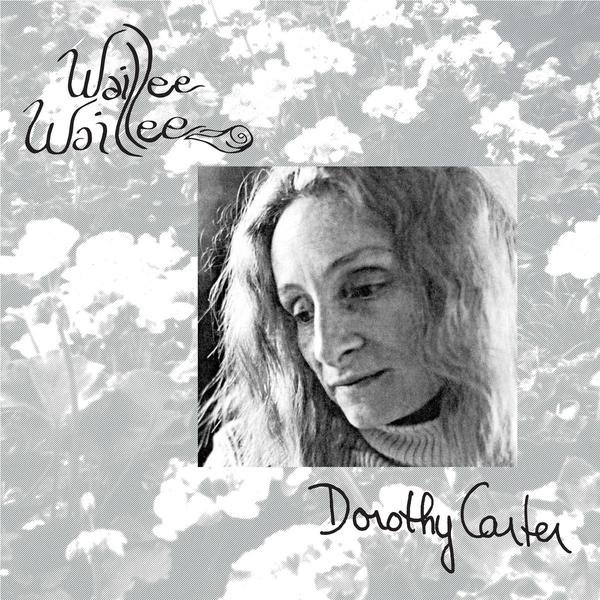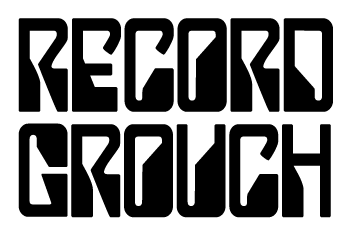 Image 1 of
Image 1 of


Dorothy Carter: Waillee Waillee (Palto Flats/Putojefe Records)
We couldn’t’ recall much about Dorothy Carter prior to this reissue. Somehow we thought she had collaborated (alongside Constance Demby) with instrument builder and bohemian Robert Rutman (U.S. Steel Cello Ensemble and Central Maine Power Music Company). And though we had had her first record, _ Troubadour_ (Celeste, 1976) at some point, we must have found it so unremarkable that we had no recollection of what it sounded like (British Folk? Vermont New Age? Xtian culty?). And though we only ordered one or two LPs via Discogs in all of 2023, when a _ Troubadour_ arrived in mid-December it sounded, well, pleasant, but nothing like her second remarkable album issued by Celeste just two years later: Waillee Waillee (Celeste 1978).
And we echo the one-sheet here, as this recoding includes hammered dulcimer, zither, and other instruments in the psalterium family, all of which is “[u]nderscored by Bob Rutman's cavernous bowing of the steel cello, the richness of Waillee Waillee’s sound produces an album unlike any other.” The album balances the historical, the contemporary and something uniquely timeless, a complement better than all the Pitchfork numbers and algorithm metrics put together.
Even this biographical anecdote offers insight: early in her performing life Carter championed the Irish harp, studying in conservatories in Europe and the U.K. where she researched Renaissance and Elizabethan court music and French troubadours. Discovering a psaltery in a music repair shop while getting her harp fixed in the 1960s, she grabbed on to this instrument, which along with notes on the history of the zither family, furthered her development. As the liner notes included with the record indicate, the fact these instruments were available outside conservatories inspired her politics and aesthetic sensibilities.
This is a beautiful and compelling record worthy of many, many repeat listens as it stands at the intersection of avant and traditional instrumentation, production and performance techniques. The sequencing of the album engages the listener, especially in how voice and instrumental pieces coexist, appearing and disappearing. All of these diverse details feel quite seamless and interconnected.
A remarkable album, especially for us to celebrate, as we struggle with New Age tropes and anything that whiffs of patchouli.
Thanks to Palto Flats/Putojefe Records for making this happen.
We couldn’t’ recall much about Dorothy Carter prior to this reissue. Somehow we thought she had collaborated (alongside Constance Demby) with instrument builder and bohemian Robert Rutman (U.S. Steel Cello Ensemble and Central Maine Power Music Company). And though we had had her first record, _ Troubadour_ (Celeste, 1976) at some point, we must have found it so unremarkable that we had no recollection of what it sounded like (British Folk? Vermont New Age? Xtian culty?). And though we only ordered one or two LPs via Discogs in all of 2023, when a _ Troubadour_ arrived in mid-December it sounded, well, pleasant, but nothing like her second remarkable album issued by Celeste just two years later: Waillee Waillee (Celeste 1978).
And we echo the one-sheet here, as this recoding includes hammered dulcimer, zither, and other instruments in the psalterium family, all of which is “[u]nderscored by Bob Rutman's cavernous bowing of the steel cello, the richness of Waillee Waillee’s sound produces an album unlike any other.” The album balances the historical, the contemporary and something uniquely timeless, a complement better than all the Pitchfork numbers and algorithm metrics put together.
Even this biographical anecdote offers insight: early in her performing life Carter championed the Irish harp, studying in conservatories in Europe and the U.K. where she researched Renaissance and Elizabethan court music and French troubadours. Discovering a psaltery in a music repair shop while getting her harp fixed in the 1960s, she grabbed on to this instrument, which along with notes on the history of the zither family, furthered her development. As the liner notes included with the record indicate, the fact these instruments were available outside conservatories inspired her politics and aesthetic sensibilities.
This is a beautiful and compelling record worthy of many, many repeat listens as it stands at the intersection of avant and traditional instrumentation, production and performance techniques. The sequencing of the album engages the listener, especially in how voice and instrumental pieces coexist, appearing and disappearing. All of these diverse details feel quite seamless and interconnected.
A remarkable album, especially for us to celebrate, as we struggle with New Age tropes and anything that whiffs of patchouli.
Thanks to Palto Flats/Putojefe Records for making this happen.
We couldn’t’ recall much about Dorothy Carter prior to this reissue. Somehow we thought she had collaborated (alongside Constance Demby) with instrument builder and bohemian Robert Rutman (U.S. Steel Cello Ensemble and Central Maine Power Music Company). And though we had had her first record, _ Troubadour_ (Celeste, 1976) at some point, we must have found it so unremarkable that we had no recollection of what it sounded like (British Folk? Vermont New Age? Xtian culty?). And though we only ordered one or two LPs via Discogs in all of 2023, when a _ Troubadour_ arrived in mid-December it sounded, well, pleasant, but nothing like her second remarkable album issued by Celeste just two years later: Waillee Waillee (Celeste 1978).
And we echo the one-sheet here, as this recoding includes hammered dulcimer, zither, and other instruments in the psalterium family, all of which is “[u]nderscored by Bob Rutman's cavernous bowing of the steel cello, the richness of Waillee Waillee’s sound produces an album unlike any other.” The album balances the historical, the contemporary and something uniquely timeless, a complement better than all the Pitchfork numbers and algorithm metrics put together.
Even this biographical anecdote offers insight: early in her performing life Carter championed the Irish harp, studying in conservatories in Europe and the U.K. where she researched Renaissance and Elizabethan court music and French troubadours. Discovering a psaltery in a music repair shop while getting her harp fixed in the 1960s, she grabbed on to this instrument, which along with notes on the history of the zither family, furthered her development. As the liner notes included with the record indicate, the fact these instruments were available outside conservatories inspired her politics and aesthetic sensibilities.
This is a beautiful and compelling record worthy of many, many repeat listens as it stands at the intersection of avant and traditional instrumentation, production and performance techniques. The sequencing of the album engages the listener, especially in how voice and instrumental pieces coexist, appearing and disappearing. All of these diverse details feel quite seamless and interconnected.
A remarkable album, especially for us to celebrate, as we struggle with New Age tropes and anything that whiffs of patchouli.
Thanks to Palto Flats/Putojefe Records for making this happen.
